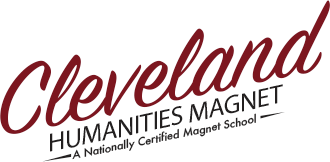10th Grade Philosophy
Unit 1: Study of Virtue in The Ancient Greek Culture
Specific Topics
Essential Questions
- How is Virtue defined in the early era?
- How and why does definition of Virtue change?
- How is idea of Virtue manifested in different disciplines?
- How are the links between the disciplines established for a more thorough understanding of the interdisciplinary aspect of the subject of virtue?
Student Understandings
- the definitions and applications of the definitions of virtue from Aristotle.
- the methodologies and philosophical views of the pre-Socratic philosophers.
- the definitions of Justice offered in Book One of “The Republic”.
- the definitions of Virtue offered in “Meno”.
Readings & Materials
Unit 2: The Rise of Christianity
Specific Topics
- The transition of Greek philosophy to the Roman empire
- Jewish traditions that translated into early Christianity
- The transformation of ethics and metaphysics in the Roman empire
Essential Questions
- What ethical and metaphysical questions drive Roman philosophy?
- How did Judaism influence the early Christian church?
- How did Stoicism’s similarity to Christianity drive the Roman empire to adopt Christianity?
- What transformations of Judaism made Christianity acceptable to the Roman empire?
Student Understandings
- the dominant philosophies of the Roman empire.
- how religion and philosophy merge in the Roman empire.
- the Jewish roots of Christianity and its ethical influence on the Roman empire.
Readings & Materials
- The History of Philosophy
- TANAKA (Genesis 18-22)
- New International Version of the New Testament (I Corinthians 13; John 1-3; Romans 4)
Unit 3: The Bloody History of the Catholic Church
Specific Topics
- St. Augustine and Neo-Platonism
- St. Augustine and The Just War Theory
- St. Thomas Aquinas’ Five Proofs of G-d
- St. Thomas Aquinas and the Rise of Scholasticism
- Galileo’s Astronomy and Its Challenges To Church Doctrine
- Francis Bacon Destroys Church Dominance In The Educational System of Europe
Essential Questions
- How does the Church make the transformation from reason to faith and back again?
- How can the Church embrace Jesus as the “Prince of Peace” while committing atrocities against Jewish, Muslim and fellow Christian populations?
- How did Islam influence Christian and European philosophy, art and religion?
- How did the logic used by the Church change from the Dark and Middle Ages as Europe moved into the Renaissance?
Student Understandings
- St. Augustine keeps philosophy alive during the Dark and Middle Ages.
- St. Thomas Aquinas embraces science as long as it does not contradict church doctrine.
- Islamic philosophy and culture transform European philosophy and education.
- The educational power of the church is destroyed by the rise of science.
Readings & Materials
- Francis Bacon – Novum Organum
- St. Thomas Aquinas – Summa Theologiae
- Chronicles of the Crusades
- Anne Rottenberg – “Elements of Argument”
Unit 4: The Romantics & The Victorians
Specific Topics
- Political philosophies developed during the Enlightenment
- Economic philosophies developed during the Enlightenment
- The implications of capitalism in Europe
- The issues of race, class and gender marginalization in the Enlightenment
Essential Questions
- How did the philosophies of Hobbes, Locke and Rousseau alter governmental systems in Europe?
- How did Capitalism and Karl Marx’s challenges to it transform the nations of Europe?
- How were minorities, the poor and women marginalized during the Enlightenment?
Student Understandings
- the essential features of Adam Smith’s capitalist system.
- Marx’s criticisms of capitalism.
- the impact of Marxism on the history of the 20th Century.
- the major political philosophers (Hobbes, Locke and Rousseau).
Readings & Materials
- Leviathan – Thomas Hobbes
- The Nobel Savage – Jean-Jacques Rousseau
- The Duties of Women – Jean Jacques Rousseau
- The Wealth of Nations – Adam Smith
- The Communist Manifesto – Karl Marx


